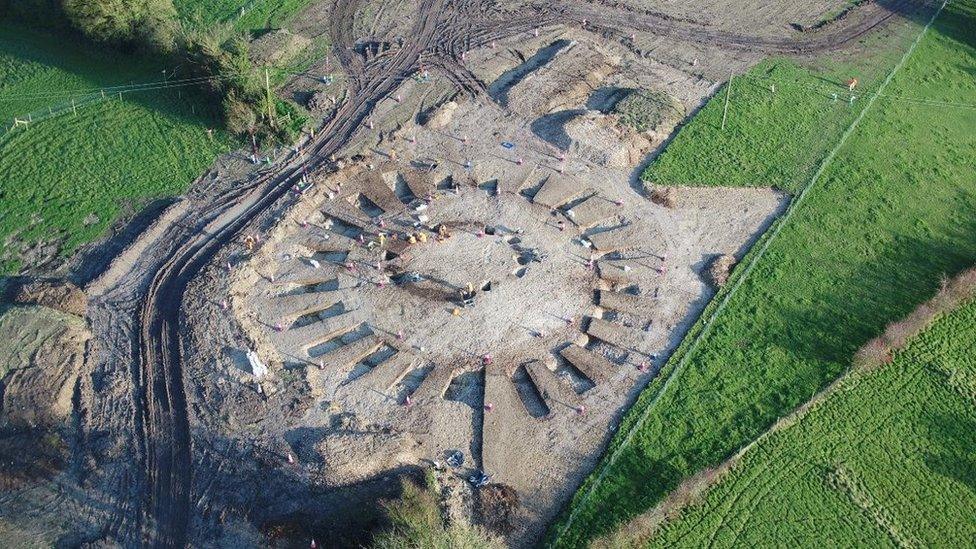Protection for Neolithic site at Thomas Hardy home
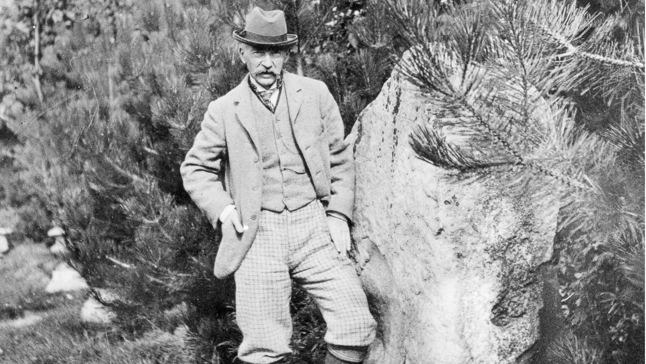
Thomas Hardy unearthed one of the sarsen stones in 1891
- Published
A Neolithic burial site at the home of novelist Thomas Hardy has been granted special protection.
The circular enclosure, buried beneath the garden at Max Gate in Dorchester, is more than 5,000 years old.
It was first excavated by Hardy in the 1880s when he was building the property.
The site has now been been listed as a scheduled monument on the advice of Historic England.
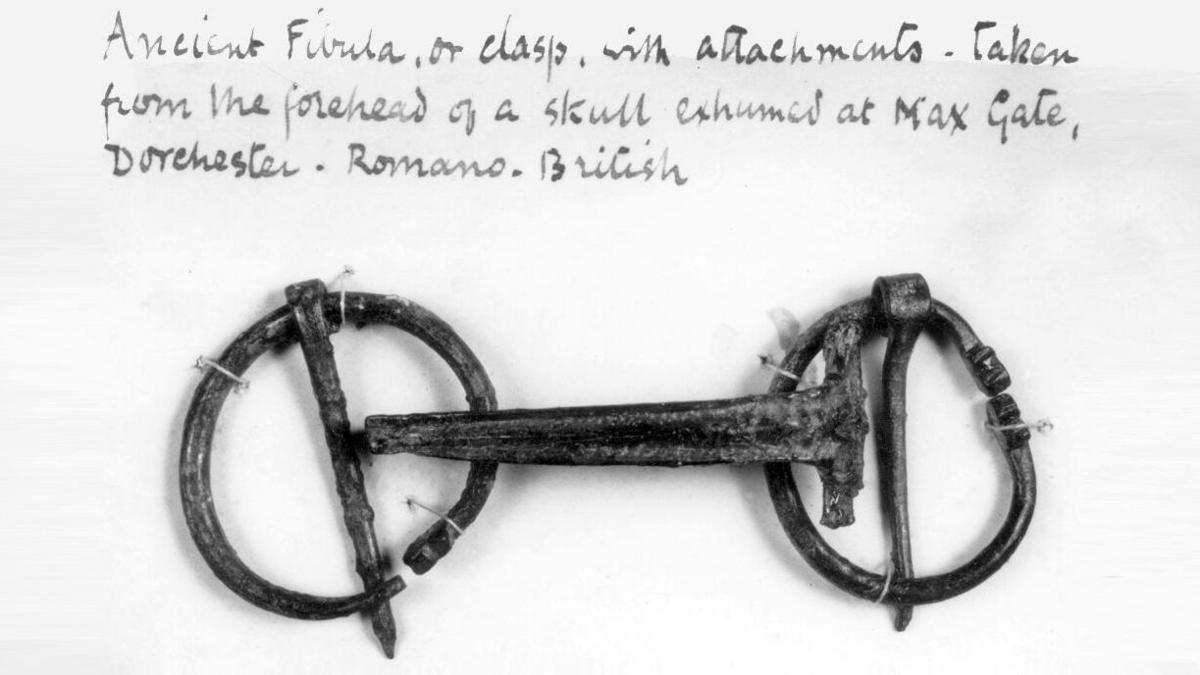
Thomas Hardy discovered numerous artefacts during excavations of his garden
Hardy, who trained as an architect, designed and built Max Gate, south of Dorset's county town, and lived there from 1885 until his death in 1928.
He found a large sarsen stone in 1891 and a second was discovered almost a century later - both were re-sited in the garden and are included in the listing.
The remains form half of a 100m-wide enclosure, known as Flagstones, made up of ditches and pits containing sarsen stones and human remains.
The other half was excavated and destroyed during the construction of the ring road in the 1980s.
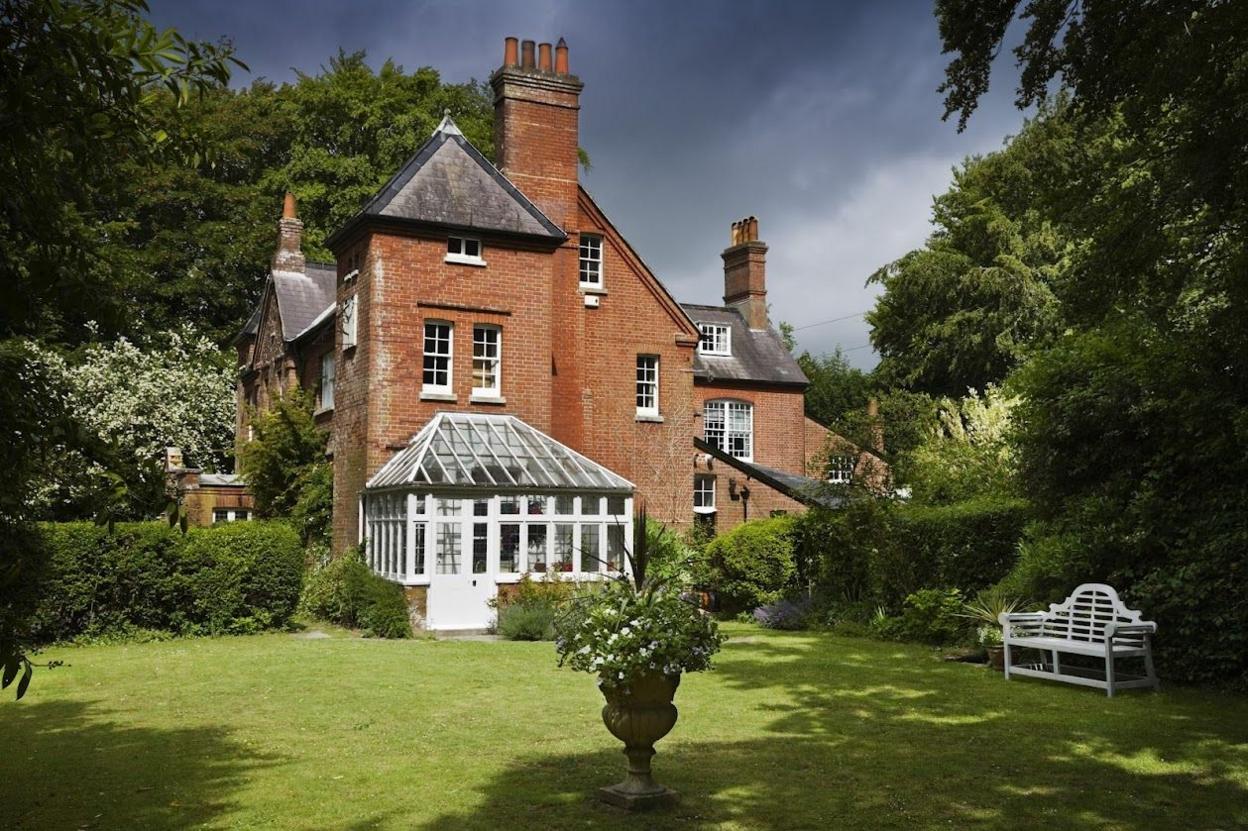
Thomas Hardy lived at Max Gate until he died in 1928
Further excavations in 2022 revealed evidence from the Early Neolithic period, making it one of the oldest archaeological sites in Dorchester, between 5,500 and 5,800 years old.
National Trust area manager Hannah Jefferson said: "Thomas Hardy's own archaeological discoveries at Max Gate featured significantly in his poems and stories, but he was also inspired to write papers, give talks locally, and display many of the artefacts found at Max Gate.
"We've no doubt Hardy would approve wholeheartedly with the scheduling of the Neolithic monument, and we're delighted that we can share with visitors the true significance of his discoveries here and their connection to his creative works."
Get in touch
Do you have a story BBC Dorset should cover?
You can follow BBC Dorset on Facebook, external, X (Twitter), external, or Instagram, external.
Related topics
- Published20 August 2024
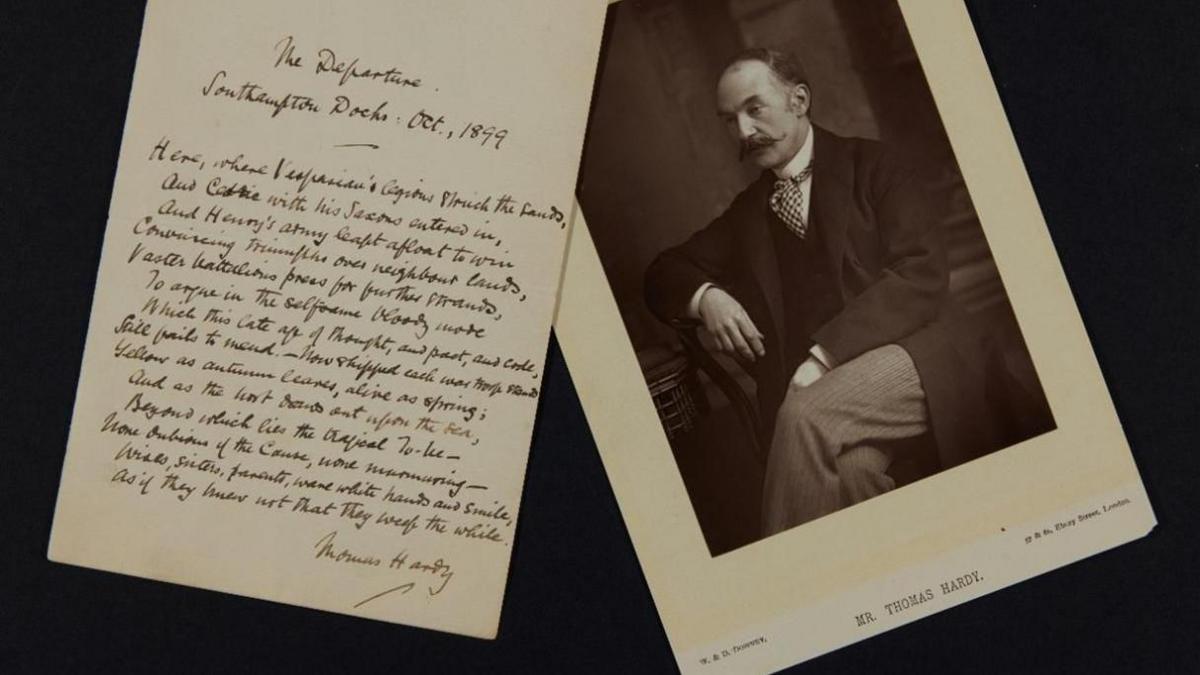
- Published14 July 2023
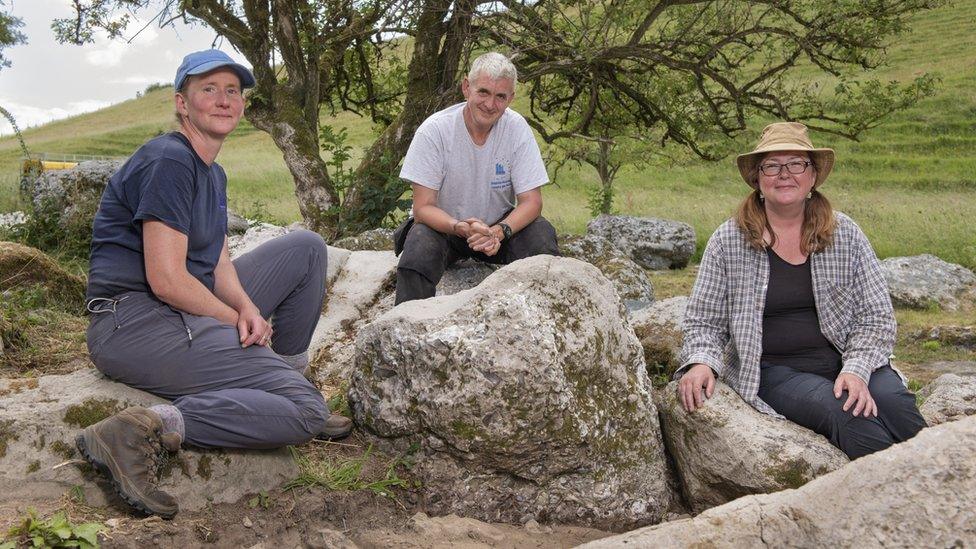
- Published11 June 2021
